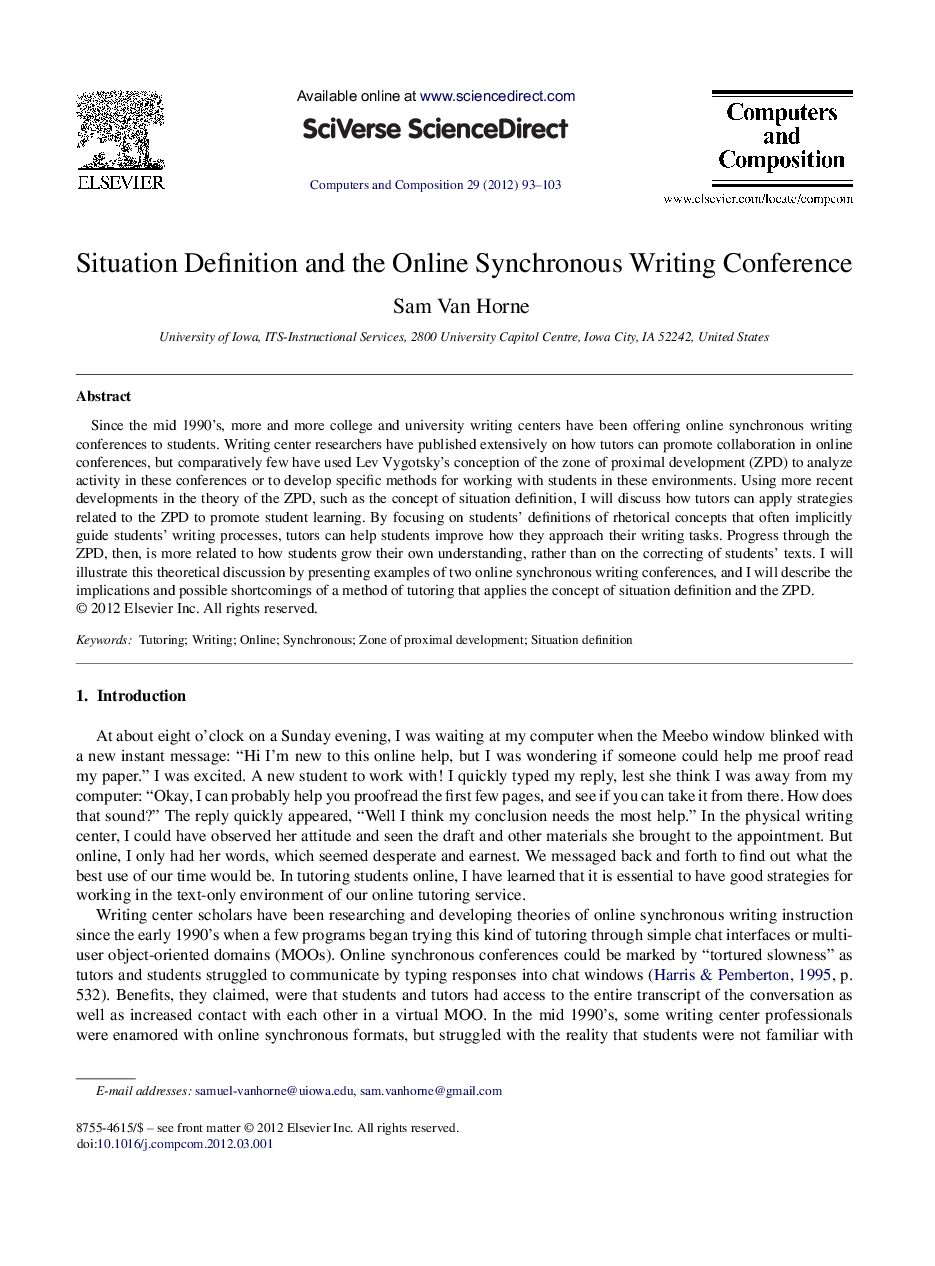| Article ID | Journal | Published Year | Pages | File Type |
|---|---|---|---|---|
| 347774 | Computers and Composition | 2012 | 11 Pages |
Since the mid 1990's, more and more college and university writing centers have been offering online synchronous writing conferences to students. Writing center researchers have published extensively on how tutors can promote collaboration in online conferences, but comparatively few have used Lev Vygotsky's conception of the zone of proximal development (ZPD) to analyze activity in these conferences or to develop specific methods for working with students in these environments. Using more recent developments in the theory of the ZPD, such as the concept of situation definition, I will discuss how tutors can apply strategies related to the ZPD to promote student learning. By focusing on students’ definitions of rhetorical concepts that often implicitly guide students’ writing processes, tutors can help students improve how they approach their writing tasks. Progress through the ZPD, then, is more related to how students grow their own understanding, rather than on the correcting of students’ texts. I will illustrate this theoretical discussion by presenting examples of two online synchronous writing conferences, and I will describe the implications and possible shortcomings of a method of tutoring that applies the concept of situation definition and the ZPD.
► The zone of proximal development complements online synchronous tutoring. ► Tutors help students re-define their rhetorical concepts and improve their writing. ► Situation definition is an important concept for tutoring online.
